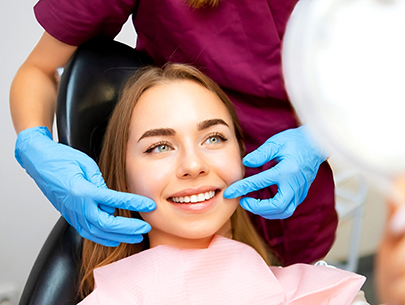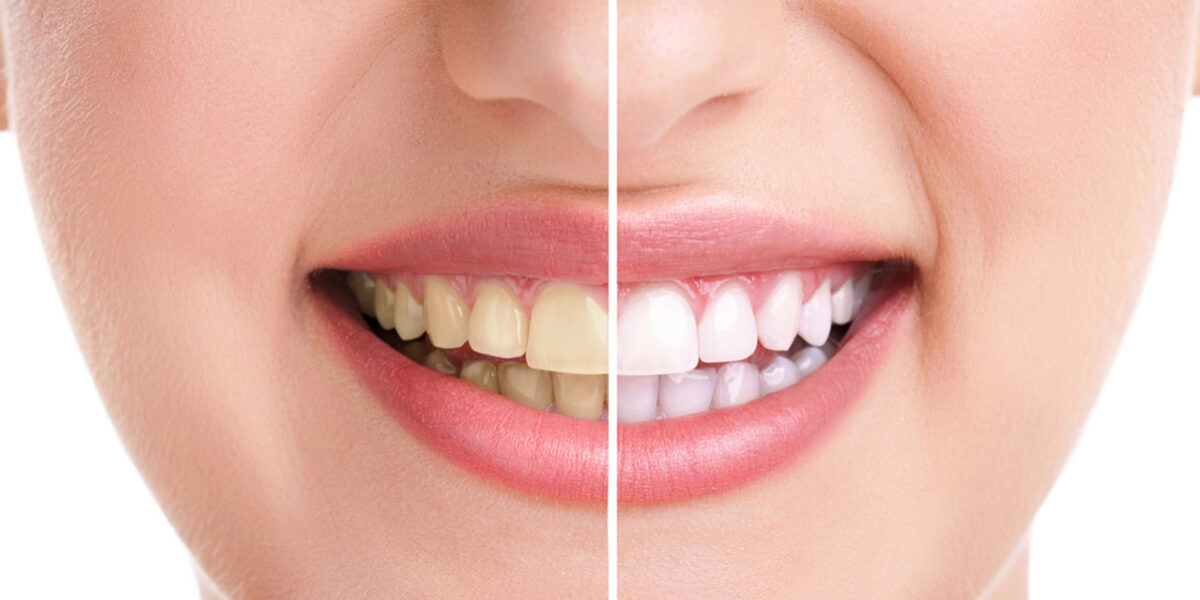3 Important reasons why Teeth Whitening is Best Done at the Dentist
Take into account the distinctions between getting your teeth whitened at home and at the dentist before making your decision. Although at-home teeth whitening is less expensive than in-office whitening, professional teeth whitening offers significantly better outcomes and carries a lower risk than over-the-counter or at-home techniques.

1. Quick Outcomes in an Hour
The bleaching chemical, hydrogen peroxide, is present in both at-home and in-office solutions, regardless of the approach you take. At-home techniques use 3% to 20% peroxide, and in-office systems use 15% to 43%. The bleaching chemical used at the dentist has a higher peroxide content, which results in better and faster tooth whitening.
Dentists employ heat or light in addition to a high peroxide content to expedite the whitening procedure and enhance the whitening outcomes. Therefore, professional teeth whitening may give you a brighter smile that is 2 to 8 shades lighter in just one hour, but at-home procedures usually take weeks or even months to see any noticeable improvements.
2. A Brighter, Longer-Lasting Smile
One of the biggest benefits of having your teeth whitened by a dentist is that they can supervise the procedure both before and after, ensuring positive outcomes that are impossible to achieve using at-home techniques.
The dentist will first check your teeth to see whether you are a good candidate for teeth whitening before proceeding with the procedure. Your teeth may appear discolored or stained if you have any visible restorations that cannot be bleached. After doing a thorough examination, the dentist will be able to decide if bleaching is the best course of action for you. By doing this, any possible subpar outcomes can be avoided.
To maximize results, the dentist will also clean your teeth and remove any tartar or plaque before using the bleaching solution. In order to ensure that nothing goes wrong and that the whitening technique is as painless as possible, with little to no tooth sensitivity and gum irritation after treatment, the dentist will also keep an eye on it during treatment.
In-office professional whitening penetrates teeth from the inside, where age and medication-related discolouration occurs, in contrast to the majority of at-home whitening techniques (whitening toothpastes, baking soda, etc.), which remove plaque and discoloration on the teeth’s surface. Compared to at-home devices, this produces significantly more noticeable and durable outcomes. (It’s crucial to remember that, depending on your unique situation, it can take multiple sessions to get noticeable improvements on your teeth.)
3. Reduced Chance of Damage and Tooth Sensitivity
After teeth whitening, gum inflammation and tooth sensitivity are frequent side effects. Too much time spent with the whitening gel causes the teeth to become dry and sensitive. Certain meals might cause discomfort and irritation to your gums if the peroxide ingredient gets on them. The patient is far more likely to abuse the at-home whitening devices, which could result in discomfort and sensitivity as well as less than ideal outcomes.
Instead, the dentist will protect your mouth, teeth, and gums by preparing them before using the bleaching solution. A dentist who performs teeth whitening is skilled at producing the greatest results while avoiding causing damage to the teeth.
In conclusion, the many benefits of professional teeth whitening outweigh the health hazards of at-home whitening techniques, making the latter the clear superior choice.







